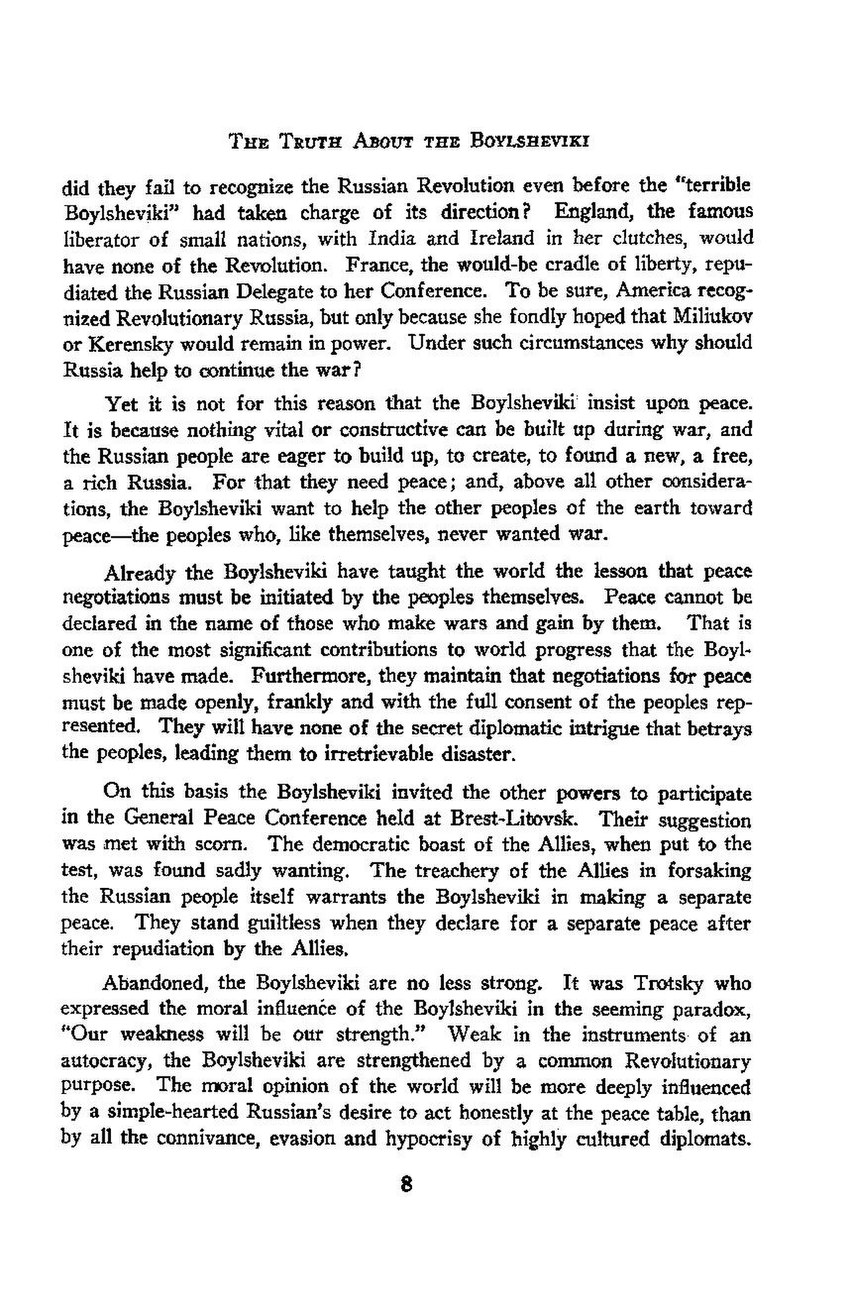The Truth About the Bolsheviki
did they fail to recognize the Russian Revolution even before the "terrible Boylsheviki" had taken charge of its direction? England, the the famous liberator of small nations, with India and Ireland in her clutches, would have none of the Revolution. France, the would-be cradle of liberty, repudiated the Russian Delegate to her Conference. To be sure, America recognized Revolutionary Russia, but only because she fondly hoped that Miliukov or Kerensky would remain in power. Under such circumstances why would Russia help continue the war?
Yet it is not for this reason that the Boylsheviki insist upon peace. It is because nothing vital or constructive can be built up during war, and the Russian people are eager to build up, to create, to found a new, a free, a rich Russia. For that they need peace; and, above all other considerations, the Boylsheviki want to help the other peoples of the earth toward peace—the peoples who, like themselves, never wanted war.
Already the Boylsheviki have taught the world the lesson that peace negotiations must be initiated by the peoples themselves. Peace cannot be declared in the name of those who make wars and gain by them. That is one of the most: significant contributions to world progress that the Boylsheviki have made. Furthermore, they maintain that negotiations for peace must be made openly, frankly and with the full consent of the peoples represented. They will have none of the secret diplomatic intrigue that betrays the peoples, leading them to irretrievable disaster.
On this basis the Boylsheviki invited the other powers to participate in the General Peace Conference held at Brest-Litovsk. Their suggestion was met with scorn. The democratic boast of the Allies, when put to the test, was found sadly wanting. The treachery of the Allies in forsaking the Russian people itself warrants the Boylsheviki in making a separate peace. They stand guiltless when they declare for a separate peace after their repudiation by the Allies.
Abandoned, the Boylsheviki are no less strong. It was Trotsky who expressed the moral. influence of the Boylsheviki in the seeming paradox, "Our weakness will be our strength." Weak in the instruments of an autocracy, the Boylsheviki are strengthened by a common Revolutionary purpose. The moral opinion of the world will be more deeply influenced by a simple-hearted Russian's desire to act honestly at the peace table, than by all the connivance, evasion and hypocrisy of highly cultured diplomats.
8
